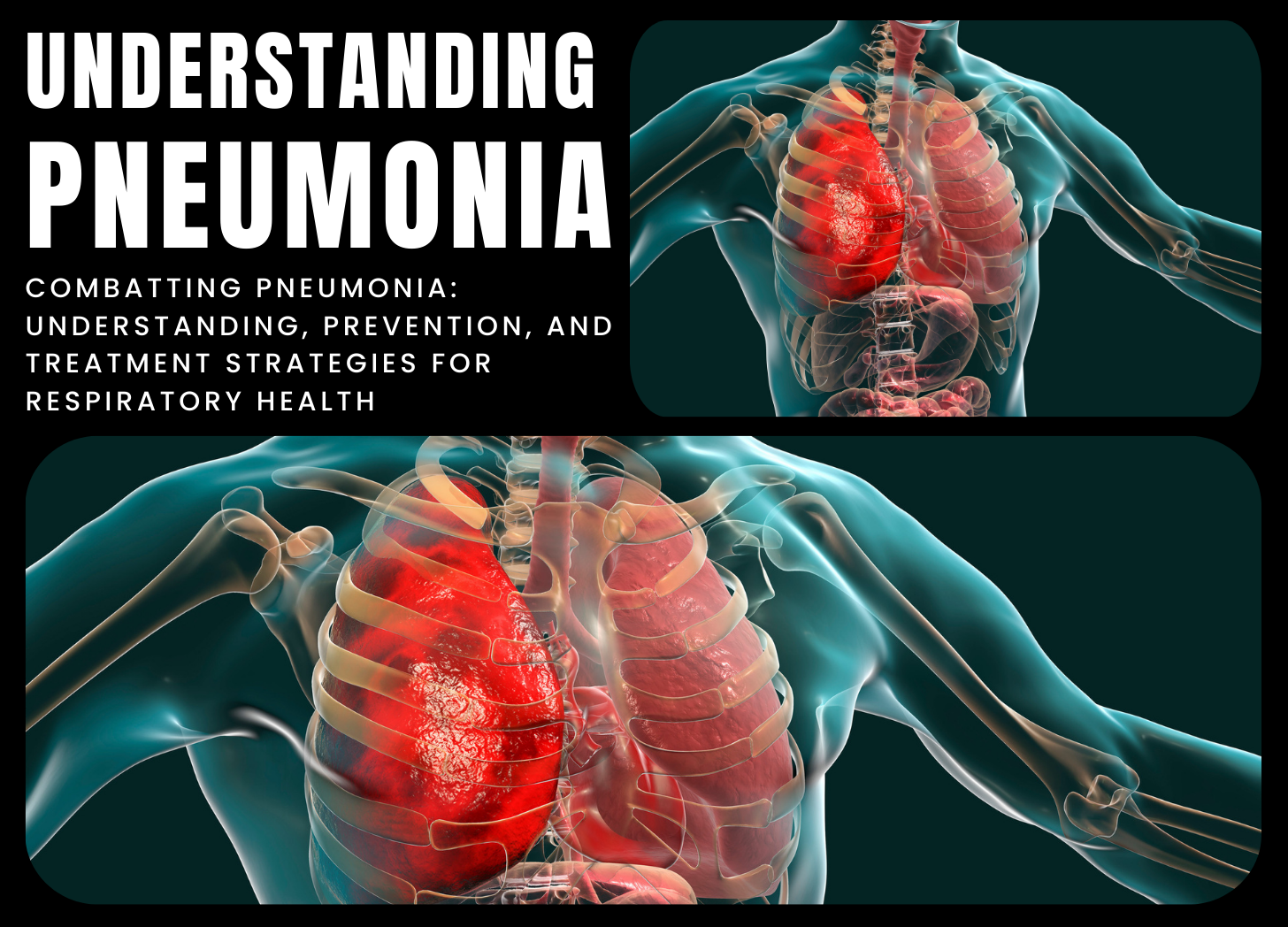Contact Us
Contact Us

Pneumonia is a common, sometimes fatal respiratory infection that affects people of all ages around the world. This inflammatory disorder primarily affects the lungs, causing the air sacs (alveoli) to swell with pus or fluid, reducing the lung’s ability to oxygenate blood adequately. Bacteria, viruses, fungi, and, less commonly, parasites are all pathogens that can cause pneumonia. Streptococcus pneumoniae is the most prevalent bacterial cause of pneumonia, followed by respiratory viruses including influenza and respiratory syncytial virus (RSV).
Pneumonia symptoms can range from moderate to severe, including cough, fever, chills, chest pain, difficulty breathing, and exhaustion. In more severe cases, pneumonia can cause respiratory failure, sepsis, and even death, especially in vulnerable groups like the elderly, small children, and those with weaker immune systems.
Pneumonia is normally diagnosed with a physical examination, chest X-ray, and laboratory investigations, such as blood cultures and sputum analysis, to determine the causative agent. Treatment for pneumonia is determined on the underlying cause and severity of the infection. Antibiotics are commonly used to treat bacterial pneumonia, but antiviral medicines may be used for viral pneumonia. Rest, appropriate drinking, and over-the-counter pain medicines to reduce fever and discomfort can all help with recuperation.
Preventive strategies play an important role in lowering the risk of pneumonia. Vaccination against common bacterial and viral diseases, such as the pneumococcal and influenza vaccines, is recommended, especially for high-risk patients. Furthermore, practicing good hand cleanliness, avoiding direct contact with sick people, and leading a healthy lifestyle that includes regular exercise and a balanced diet can help to strengthen the immune system and reduce susceptibility to respiratory infections.
Finally, pneumonia is a serious public health risk that must be identified, diagnosed, and treated as soon as possible in order to reduce complications and improve outcomes. Individuals and healthcare professionals can effectively combat pneumonia by learning its causes, symptoms, and preventative actions.
Mayo Clinic. (n.d.). Pneumonia. Retrieved from https://www.mayoclinic.org/diseases-conditions/pneumonia/symptoms-causes/syc-20354204
Post a Comment